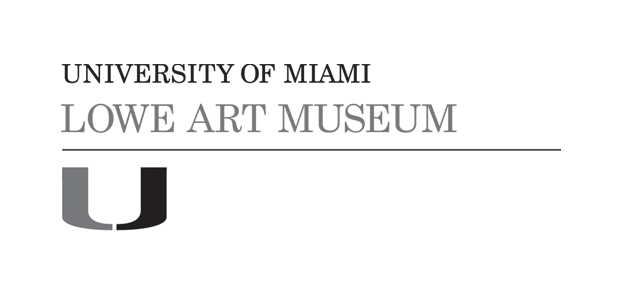Storage Vessel (Stamnos)
Date6th century BCE
Mediumbronze
DimensionsOverall: 15 3/4 x 17 x 12 3/8 in. (40 x 43.2 x 31.4 cm)
ClassificationsContainers
Credit LineMuseum purchase through the 2001 Director's Circle, the Linnie E. Dalbeck Memorial Endowment Fund, the Thea Katzenstein Endowment Fund, the Mattie Lee McKey Fund and the Lowe Art Museum Acquisitions Fund
Object number2001.05
DescriptionThis well-preserved example of a major antique vessel type, a stamnos, was used for storing wine and oil. It has the smoothness of cast bronze, but its remarkably even surface, characterized by an even blue-green patina of great depth, is actually the result of masterful manipulation of a hammer on bronze sheeting. Metal was used in ancient times for many purposes. One of the chief metals employed was bronze, but because it could be conveniently melted down in times of stress and made into something else, few pieces survive. Close examination reveals the intricacy and delicacy of the decorative band and ornamentation on the rim, base, handles, and handle joins. The contradictory coupling of bold form and fine ornament attest to the sophistication of the design and the skill of the artist. This stamnos is from Etruria, a wealthy and powerful region in ancient Italy, today part of Tuscany (see the map to the left). Although its origins lie in obscurity, a distinctive Etruscan culture evolved around the 8th century B.C., developed rapidly during the 7th century B.C., achieved its peak of power and wealth during the 6th century B.C., and declined during the 5th and 4th centuries B.C. Etruscan culture had important stylistic relationships with contemporary artistic practices in Greece, and was a key influence on later Roman art. The Etruscans were expert at fashioning objects from bronze, many of which were often exported to Greece and even to Western Europe.

